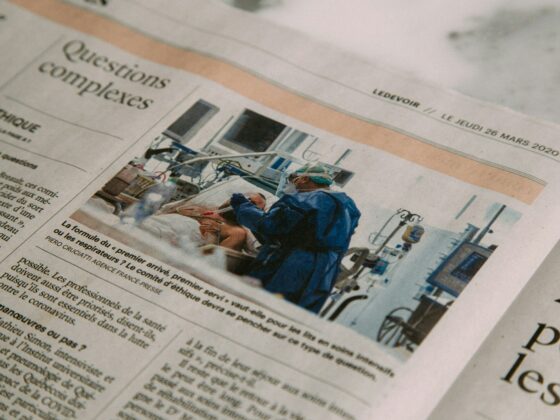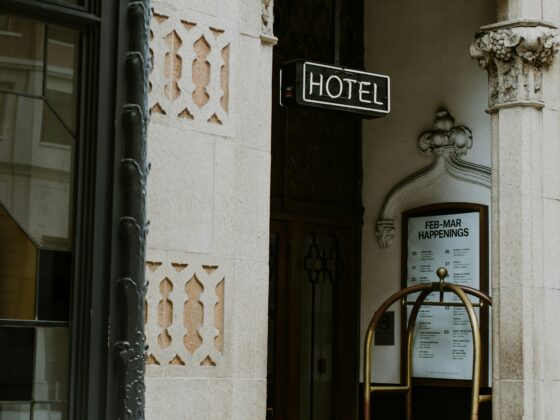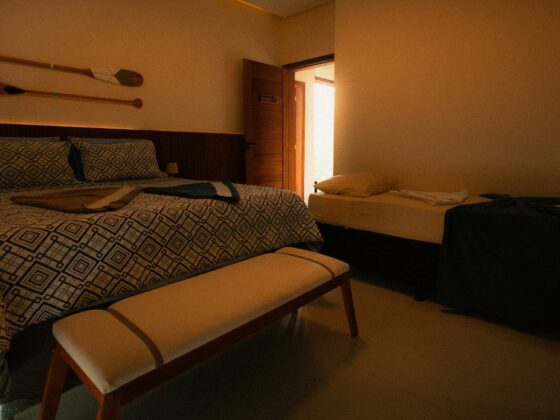Why do some of the world’s most celebrated hotels receive lower guest ratings than others with fewer accolades? The answer lies in how excellence is defined. As Michelin’s new Key system expands globally, its view of what makes a hotel exceptional sometimes contrasts with what guests actually experience.
In comparing Michelin’s 2025 awards with Reviewpro’s Reputation Global Review Index (GRI) data for London, Venice, Abu Dhabi, and New York, we found that both perspectives are valid, but they measure different kinds of mastery. Michelin celebrates artistry and emotion, while guests reward reliability and connection. Understanding both tells a more complete story of hospitality today, one that blends curation and experience, heritage and delivery.
Takeaways
Michelin Keys vs Guest Reviews represent two complementary models of excellence, artistry versus performance.
Review volume and exclusivity shape perception in ultra-luxury segments.
Local culture and authenticity often drive higher emotional satisfaction.
Integrating Michelin insights with Reviewpro analytics provides a holistic view of hospitality success.
The narrow GRI range in London’s five-star market shows that even small perception shifts can redefine rankings among the best.
How Michelin Keys and Guest Reviews Measure Excellence
Michelin’s hotel evaluations highlight intangibles: architecture, design, and the sense of place that defines a property’s identity. Inspectors look for “memorable stays,” “authentic hospitality,” and “singular character,” focusing on how a hotel makes guests feel.
The GRI, however, quantifies tangibles such as service efficiency, staff friendliness, and comfort. Its methodology aggregates thousands of guest opinions, offering a statistically reliable measure of satisfaction and consistency.
Consistency is one of the key indicators. The Reviewpro Reputation platform analyses the past three years of review data to determine stability over time. This is measured by the average divergence from the seasonal or yearly GRI value; the smaller the peaks and troughs, the more consistent the hotel’s performance. For this analysis, Reviewpro Reputation examined 553,742 verified guest reviews to provide the most accurate picture of current performance across all hotels included in this study.In short, Michelin Keys highlight how hotels inspire, while guest reviews reveal how hotels deliver that promise day after day. Both are essential to understanding how excellence is perceived and maintained in modern hospitality.
London: Heritage Luxury Meets Modern Expectations
London’s hotel landscape perfectly illustrates the nuances between professional and guest perspectives. Michelin awarded 45 properties, including eight with the highest 3-Key distinction.
According to 2025 year-to-date GRI data, the guest satisfaction ranking differs slightly:
- The Savoy – 8th
- Raffles London at The OWO – 24th
- Claridge’s – 32nd
- Mandarin Oriental Hyde Park – 49th
- Four Seasons Park Lane – 52nd
- The Connaught – 62nd
- Bulgari Hotel London – 74th
- The Peninsula London – 95th
These results highlight not a gap, but a difference in focus. Michelin recognizes craftsmanship, design innovation, and a sense of legacy, qualities that define icons like Bulgari, The Peninsula, and The Connaught. Guest reviews, meanwhile, reflect the day-to-day rhythm of hospitality, how comfort, service, and perceived value resonate in real time.
It’s also worth noting the remarkable competitiveness of the London market. The top 100 five-star properties cluster within an exceptionally narrow GRI range of just eight percentage points, from 98% to 89.8%. In such an environment, even small fluctuations in perception can shift rankings among the world’s most sophisticated hotels.
Review volume and exclusivity further influence GRI outcomes. The average number of reviews per hotel room per year among the top 100 hotels is 8.75. The ten best-rated hotels average 6.92, while the top five average just 6.00. Hotels with 3 Keys receive an average of 6.11 reviews per room per year. The fewer the reviews, the greater the weight of each individual opinion — a dynamic especially relevant to ultra-luxury hotels, where expectations are exceptionally high. Collectively, the 100 best London properties generated 71,058 reviews, providing a statistically sound dataset for analysis.
London ultimately demonstrates that excellence can take many forms: some hotels earn their standing through heritage and artistry, others through daily operational consistency. Both are legitimate, and together they define the modern meaning of five-star service.
Venice: The Power of Authentic Connection
Venice, long a symbol of romance and tradition, offers a different interpretation of Michelin Keys vs Guest Reviews. Michelin awarded 11 hotels: 2 with 3 Keys, 2 with 2 Keys, and 7 with 1 Key.
Guest satisfaction rankings reveal another hierarchy:
- Palazzo Venart Luxury Hotel (1 Key) – 2nd
- Corte di Gabriela (1 Key) – 8th
- Hotel Londra Palace (1 Key) – 3rd
- Hotel Cipriani, A Belmond Hotel (3 Keys) – 18th
- Nolinski Venezia (2 Keys) – 22nd
- Hotel Violino d’Oro (1 Key) – 49th
- Aman Venice (3 Keys) – 53rd
Smaller independent properties often achieve higher guest ratings, suggesting that authenticity and emotional connection drive satisfaction in Venice. Michelin’s 3-Key properties emphasize craftsmanship and design, while guest reviews reward personalized service and local character.
In Venice, the average number of reviews per hotel room per year among the top 74 hotels is 12.64. The ten best-rated hotels average 12.91, while the top four average just 4.57. Hotels with 1 Key receive 5.57 reviews per room per year, those with 2 Keys 3.96, and 3-Key hotels only 2.61.
The fewer the reviews,as we said for London, the greater the weight of each individual opinion, a significant factor in ultra-luxury hotels, where expectations are exceptionally high. Collectively, the 74 Venetian properties generated 41,047 reviews, a statistically strong dataset.
Venice reminds us that luxury is not a single formula. Here, emotional warmth and human connection can rival and even surpass architectural or culinary grandeur. Each system values excellence, but through distinct cultural and experiential lenses.
Abu Dhabi: Precision and Consistency in a Competitive Market
In Abu Dhabi, one of the most refined and competitive luxury markets, Michelin awarded six hotels, including just one with 3 Keys.
Guest review data for 2025 shows:
- Emirates Palace Mandarin Oriental (3 Keys) – 4th
- Conrad Abu Dhabi Etihad Towers (1 Key) – 5th
- Four Seasons Al Maryah Island (1 Key) – 12th
- Rosewood Abu Dhabi (1 Key) – 32nd
- Rixos Premium Saadiyat Island (1 Key) – 33rd
- Jumeirah at Saadiyat Island Resort (1 Key) – 35th
- ERTH Hotel – 43rd
Here, professional and guest evaluations align more closely. Michelin’s recognition of properties like Emirates Palace Mandarin Oriental underscores how artistry and precision can coexist when operational excellence supports design-driven vision. The city’s hotel sector prizes consistency, innovation, and service reliability, values clearly reflected in both sets of metrics.
In Abu Dhabi, the average number of reviews per hotel room per year among the top 50 hotels is 7.27. The ten best-rated hotels average 8.83, while the top five average 10.95. The hotel with 3 Keys received 13.94 reviews per room per year, while the 1-Key hotels received 6.53 reviews per room per year. Collectively, the 50 best Abu Dhabi properties generated 111,956 reviews, a statistically strong dataset that reinforces the city’s reputation for consistency and competitive excellence.
Abu Dhabi, therefore, demonstrates what happens when Michelin’s qualitative lens and Reviewpro’s quantitative insights meet: a market where curation, brand discipline, and service precision reinforce one another.
New York: Diversity and Dynamism in the World’s Hospitality Capital
New York offers one of the most diverse and competitive hotel landscapes in the world. For this analysis, Reviewpro Reputation examined 521 properties across the city. Michelin awarded 26 hotels with its Keys distinction: three with 3 Keys, seven with 2 Keys, and fifteen with 1 Key.
The data reveals an intriguing contrast between professional recognition and guest sentiment. When ranked by the Global Review Index (GRI), the highest-scoring 3-Key property, The Whitby Hotel, appears 14th overall. The Warren Street Hotel, with 2 Keys, ranks second, while the top-performing 1-Key hotel, The Hotel Chelsea, ranks ninth.
This distribution suggests that, much like London and Venice, New York’s guests often reward experiences that feel authentic, personal, and character-driven, while Michelin’s evaluations highlight design excellence, service artistry, and craftsmanship.
New York’s findings reinforce a central theme of this analysis: that in the world’s most competitive hospitality markets, excellence is multi-dimensional. Guest sentiment and professional recognition may differ in emphasis, but together they offer a richer understanding of how hotels succeed in delivering both distinction and delight.
In New York, the average number of reviews per hotel room per year among the top 100 hotels is 5.42. The ten best-rated hotels average 4.96, while the top five average just 3.30. The hotels with 3 Keys have received only 1.22 reviews per room per year so far, while 2-Key hotels average 0.99, and 1-Key hotels reach 1.7. Collectively, the 100 best New York properties generated 111,956 reviews, a statistically sound dataset that highlights both the scale and selectivity of the market.
Beyond Ratings: Two Lenses, One Definition of Excellence
Across all three destinations, Michelin Keys vs Guest Reviews reveals two complementary ways of measuring excellence. Michelin captures the essence and artistry of hospitality, the design, emotion, and individuality that make a property special. Reviewpro’s Reputation GRI reflects the experience of that artistry in motion, how consistently it is delivered to guests each day.
Together, these perspectives create a more complete picture of performance, one that values both inspiration and execution, creativity and consistency. In an age where perception is shaped by both experts and guests, understanding how these viewpoints align and differ offers valuable insight into the future of luxury hospitality.
Conclusion
As Michelin’s Key system gains global influence, its intersection with data-driven guest feedback offers hotels a rare opportunity. Professional recognition celebrates craftsmanship and emotional impact; guest reviews reveal operational precision and satisfaction over time.
By combining both, hoteliers can align creative excellence with measurable performance and achieve a deeper, more transparent understanding of what makes hospitality truly exceptional.









